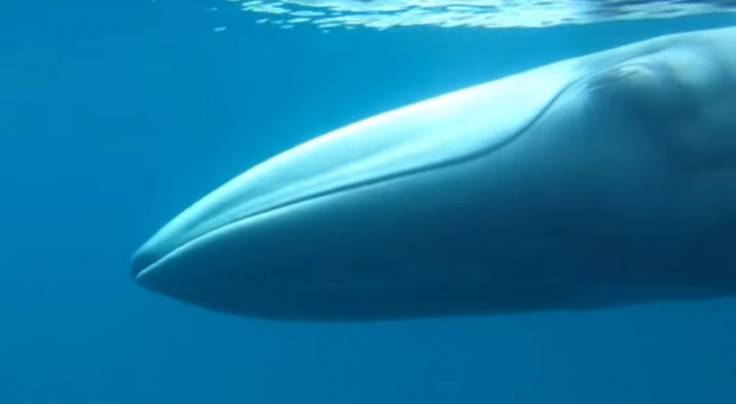World's rarest whale filmed for first time off coast of Madagascar allaying extinction fears
The rare Omura's whale has been recorded on film for the first time. Footage of the elusive and obscure species was shot by an international team of marine biologists off the coast of Madagascar. Until now, there had never been a confirmed sighting of the mammal live in the wild by scientists, though a dead specimens have been found. Up to recently the species was believed to be extinct.

Scientist Salvatore Cerchio led the research at the Wildlife Conservation Society. He is also a researcher at the Woods Hole Oceanographic Institution (WHOI). In a news release he said: "Over the years, there have been a small handful of possible sightings of Omura's whales, but nothing that was confirmed.
"They appear to occur in remote regions and are difficult to find at sea, because they are small – they range in length from approximately 33 to 38 feet – and do not put up a prominent blow [the water jet from a whale blow hole].
"What little we knew about these whales previously came primarily from eight specimens of Omura's whales taken in Japanese scientific whaling off the Solomon and Keeling Islands and a couple strandings of dead animals in Japan. This is the first definitive evidence and detailed descriptions of Omura's whales in the wild and part of what makes this work particularly exciting."
Earlier this week the researchers published a paper in the Royal Society Open Science journal which details the whales' "foraging and vocal behaviours, and habitat preferences in the shallow waters of coastal Madagascar".
The Omura's whale is a species of blue whale, but is much smaller than any of the other species of blue whale. As a result historically the Omura's whale has often been misidentified as a Bryde's whale – a different species. The Omura's whale does have distinctive characteristics, specifically the skin pigmentation of the head, which is assymetrical.
"When we clearly saw that the right jaw was white, and the left jaw was black, we knew that we were on to something very special," said Cerchio. And as well as being surprised by the sightings, the team were also startled by the whales' location: "Omura's whales were not supposed to be in this part of the Indian Ocean. Rather, they should be in the West Pacific, near Thailand and the Philippines." The numbers of the species surviving in the wild remains unknown.
© Copyright IBTimes 2025. All rights reserved.





















